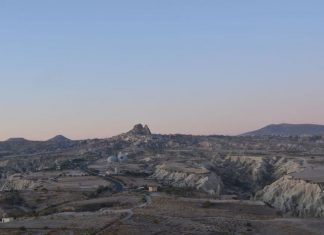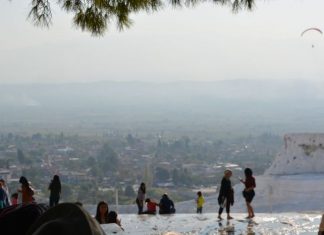There are a large number of religious establishments [“convents “] which they call khanqahs, and the nobles vie with one another in building them. Each of these is set apart for a separate school of darwishes, mostly Persians, who are men of good education and adepts in the mystical doctrines. Each has a superior and a doorkeeper and their affairs are admirably organized.
They have many special customs one of which has to do with their food. The steward of the house comes in the morning to the darwishes, each of whom indicates what food he desires, and when they assemble for meals, each person is given his bread and soup in a separate dish, none sharing with another.
They eat twice a day. They are each given winter clothes and summer clothes, and a monthly allowance of from twenty to thirty dirhams. Every Thursday night they receive sugar cakes, soap to wash their clothes, the price of a bath, and oil for their lamps. These men are celibate; the married men have separate convents.
At Cairo too is the great cemetery of al-Qarafa, which is a place of peculiar sanctity and contains the graves of innumerable scholars and pious believers. In the Qarafa the people build beautiful pavilions surrounded by walls, so that they look like houses. They also build chambers and hire Koran-readers who recite night and day in agreeable voices.
Some of them build religious houses and madrasas beside the mausoleums and on Thursday nights they go out to spend the night there with their children and women-folk, and make a circuit of the famous tombs. They go out to spend the night there also on the “Night of midSha’ban,” and the market-people take out all kinds of eatables. Among the many celebrated sanctuaries [in the city] is the holy shrine where there reposes the head of alHusayn. Beside it is a vast monastery of striking construction, on the doors of which there are silver rings and plates of the same metal.
The great river Nile
The Egyptian Nile surpasses all rivers of the earth in sweetness of taste, length of course, and utility. No other river in the world can show such a continuous series of towns and villages along its banks, or a basin so intensely cultivated. Its course is from South to North, contrary to all the other great rivers. One extraordinary thing about it is that it begins to rise in the extreme hot weather at the time when rivers generally diminish and dry up, and begins to subside just when rivers begin to increase and overflow.
Read More about Belphagor part 9








